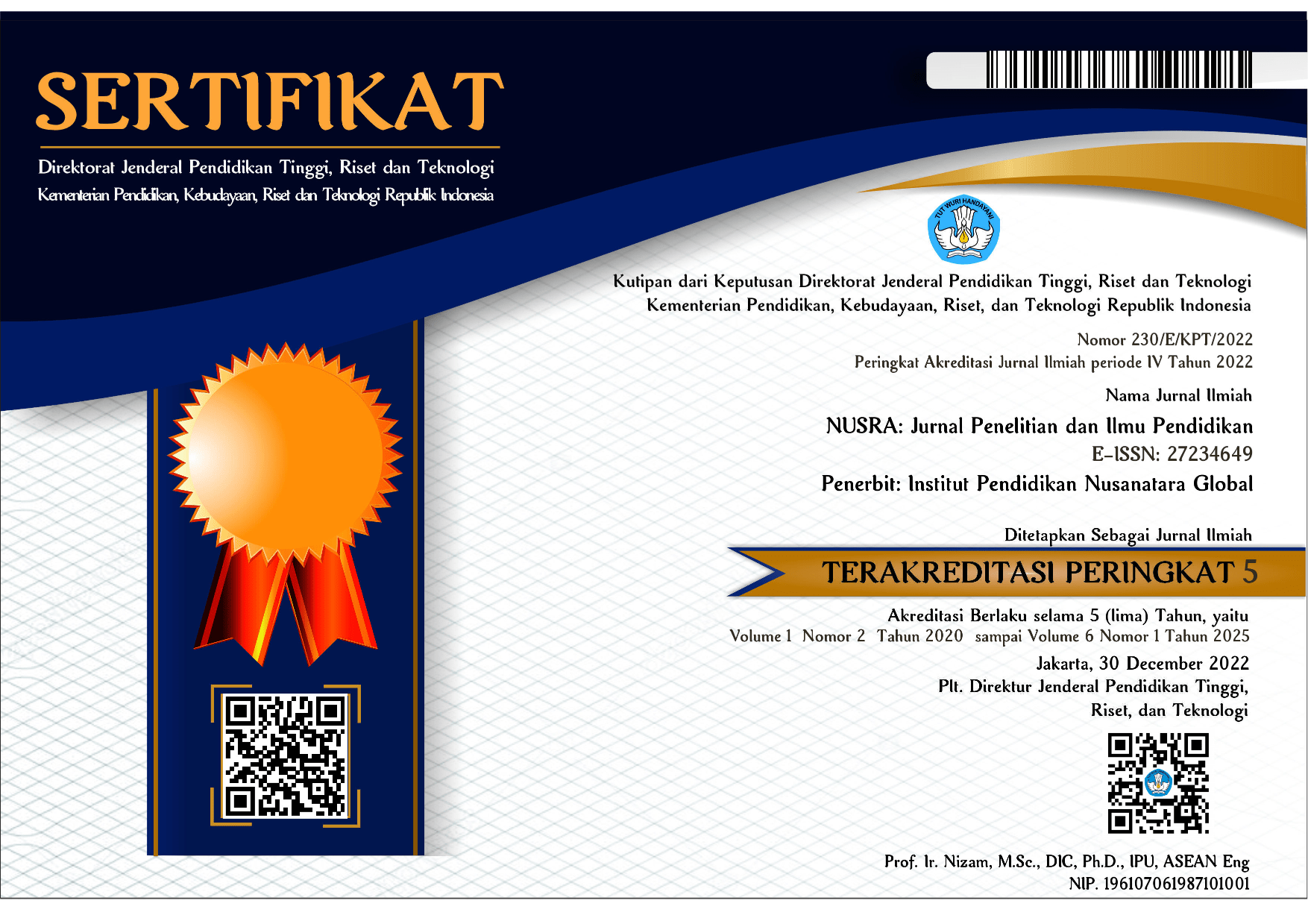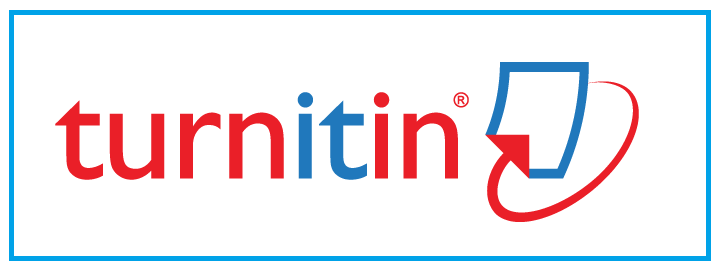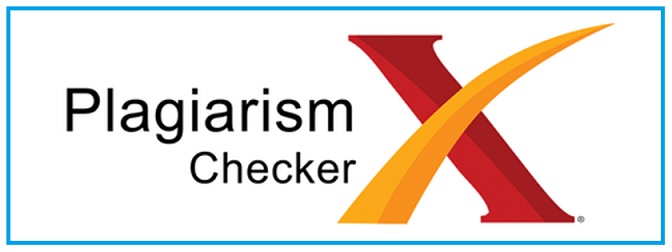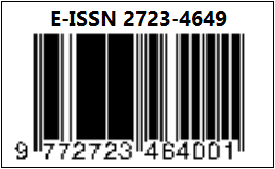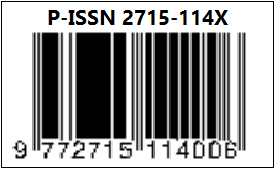Isu Global Marketing Pendidikan dan Entrepreneurship Pendidikan WCE (Pondok Pesantren Al-Ashriyyah Nurul Iman Islamic Boarding School)
DOI:
https://doi.org/10.55681/nusra.v5i1.2258Keywords:
Educational Marketing, Entrepreneurship, Global MarketingAbstract
The globalization of educational development through science and technology in the current era is moving so fast and great. Moreover, with the presence of the industrial revolution era 4.0 and welcoming the era of society 5.0. Globally, education on an international scale is generally based on the concept of enriching knowledge, honing independence and developing students' soft and hard skills. Likewise, with Islamic boarding schools, with their independence, they will become autonomous educational institutions, both from the learning system and funding. So how Islamic boarding schools manage their finances, including the strategies used to raise funds to continue the educational process in Islamic boarding schools. In the early stages of education in Islamic boarding schools, it was focused solely on teaching religious knowledge through classical books or the yellow book. Religious sciences consisting of various branches are taught in Islamic boarding schools in the form of wetonan, sorogan, memorization, or muzakarah. However, after the introduction of the ideas of reforming Islamic thought to Indonesia, this also influenced changes in the Islamic education system in Islamic boarding schools. Islamic boarding school education, which was initially only oriented towards deepening religious knowledge, began to include general subjects. It is hoped that the inclusion of general subjects will broaden the thinking horizons of the students and better prepare the students to face developments in the times.
Downloads
References
Adawiyah, SR (2018). Pendidikan Kewirausahaan di Pesantren Sirajul Huda. Jurnal COMMEDU, 1(2), 83.
Asmani, A. M. (2003). Dialektika Pesantren dengan Tuntutan Zaman, dalam Seri Pemikiran Pesantren. Menggagas Pesantren Masa Sepan. Yogyakarta: Qirtas.
Buchari Alma, (2009), Manajemen Corporate dan Strategi Pemasaran Fokus pada Mutu dan Layanan Prima, Bandung: Penerbit Alfabeta.
Chotimah, C. (2014). Pendidikan Kewirausahaan di Pondok Pesantren Sidogiri Pasuruan. Jurnal Penelitian Sosial Keagamaan, 8(1).
Dedy Takdir S, dkk, (2015), Kewirausahaan, Yogyakarta: Wijana Mahadi Karya.
Emzir (2010), Metodologi Penelitian Pendidikan Kuantitatif dan Kualitatif, Jakarta: Rajawali Press.
Fuji Koes, Ciri Umum, Karakteristik dan Nilai Hakiki Kewirausahaan,(online) tersedia: https://Wordpress.Com/Perihal/Ciri-Umum-KarakteristikDan-Nilai-Hakiki-Kewirausahaan/. (29 April 2016).
Hoernasih, N. (2017). Penerapan Nilai-Nilai Agama Islam dalam Menerbitkan Pendidikan Kewirausahaan di Pondok Pesantren. Seminar Nasional Pendidikan Nonformal FKIP Universitas Bengkulu, 1(1), 95.
Kasmir, Kewirausahan, Raja Grafindo Utama, Jakarta, 2006. ________, Kewirausahaan-Edisi Revisi, Raja Grafindo Persada, Depok, 2013 Cet. VIII.
Lexy J. Moleong, (2010), Metodologi Penelitian Kualitatif, Bandung: Remaja Rosda Karya, 2010.
Mukhtar, (2013), Metode Praktis Penelitian Deskriptif Kualitatif, Jakarta: Referensia/ GP. Press Group.
Nadzir, M. (2015). Membangun Pemberdayaan Ekonomi di Pesantren. Jurnal Conomica, 6(1).
Pierre-Andre Julien, (2007), A Theory of Local Entrepreneurship in the Knowledge Economy, USA: Edward Elgar Publishing Limited.
Sugiyono. (2015), Metode Penelitian Pendidikan. Pendekatan Kualitatif Kuantitatif. dan R&D. Bandung: Alfabeta.
Suharsimi Arikunto, (2010), Prosedur Penelitian Suatu Pendekatan Praktek. Jakarta: Rineka Cipta.
Wahidah Evita Yuliatul, Reontruksi Pendidikan Pesantren, Mibarda Pustaka Utama, Kudus, 2016.
Downloads
Published
How to Cite
Issue
Section
License
Copyright (c) 2024 Getar Rahmi Pertiwi, Mukhtar Latief, Kasful Anwar

This work is licensed under a Creative Commons Attribution-ShareAlike 4.0 International License.


